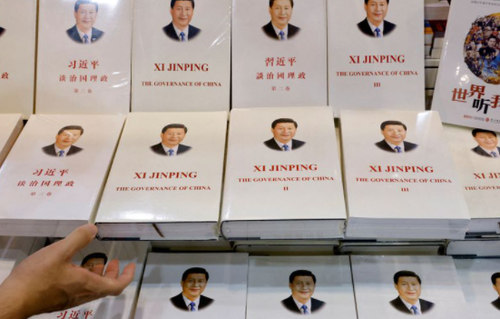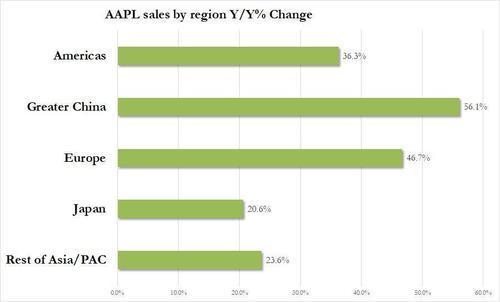Amazon Bowed To Beijing's Propaganda Arm To Keep Chinese Sales Secured, New Report Reveals
Similar to what we noted about Apple and its "pay to play" arrangement with the Chinese government at the beginning of the month, it looks as though Amazon is also in the midst of trading integrity for profit when it comes to Beijing.
Amazon was "marketing a collection of President Xi Jinping's speeches and writings on its Chinese website about two years ago, when Beijing delivered an edict," according to a new report from Reuters. Beijing wanted Amazon to stop allowing customer ratings and reviews from China.
The demand from the CCP came as a result of negative reviews of Xi's book, the report says. "I think the issue was anything under five stars," a source told Reuters.
Amazon complied with the demand, according to two sources, and on Amazon.cn, customers are unable to review or rate the book. The comments section for the book is also disabled.
Adhering to the demands of the CCP is one piece of a "deeper, decade-long effort by the company to win favor in Beijing," the report claimed.
Amazon said in an internal 2018 memo about doing business in China: "Ideological control and propaganda is the core of the toolkit for the communist party to achieve and maintain its success. We are not making judgement on whether it is right or wrong."
The report claims that "helping to further the ruling Communist Party's global economic and political agenda" has been crucial to Amazon's success in China.
In fact, Amazon even partnered with Beijing's propaganda apparatus to create a selling portal for U.S. customers called "China Books". While it hasn't generated significant revenue, the report says, "it was seen by Amazon as crucial to winning support in China".
The same 2018 Amazon briefing document called China Books "the key element to safeguard" to keep its licensing problem with China at bay.
Reuters reports that the books push favorable CCP lines on everything from Uyghur labor camps to Covid-19:
One book extols life in Xinjiang, where United Nations experts have said China interned one million ethnic Uyghurs in a network of camps. The book – "Incredible Xinjiang: Stories of Passion and Heritage" – discusses an online comedy show situated in the region. The book quotes an actor who plays a Uyghur "country bumpkin" saying that ethnicity is "not a problem" there. That echoes the position of Beijing, which has denied mistreating minority groups.
Some books portray China's battle against the COVID-19 pandemic, which began in the Chinese city of Wuhan, in heroic terms. One is titled "Stories of Courage and Determination: Wuhan in Coronavirus Lockdown." Another begins with commentary from Xi: "Our success to date has once again demonstrated the strengths of CPC (the Communist Party of China) leadership and Chinese socialism."
Recall, earlier this month we also shed light on a secret $275 billion deal Apple signed with the Chinese government. The deal emerged after a series of meetings between Cook and Chinese officials back in 2016, we wrote.
China is Apple's second-biggest market after the US, and has long been targeted as a critical market for growth. Apple's iPhones have seen growing popularity despite rising tensions with the US. This year, Apple became the second-biggest smartphone maker in China.
The deal, which was forged over the span of years, represents a five-year plan, according to documents from inside Apple that were seen by The Information. Whether talks on another five-year plan are in the works isn't yet clear.
"The fact that Apple never disclosed this deal to the US will likely trigger an angry response from lawmakers, who are bound to question Apple's loyalty to the US, along with whether it prioritized profits and growth over respecting human rights (so much for all that climate virtue signaling)," we wrote earlier this month.
Before the deal was struck, documents show, Apple executives were scrambling to salvage their relationship with Chinese officials, who had accused Apple of not contributing enough to the local economy. Amid the government crackdown and the bad publicity that accompanied it, iPhone sales plummeted, though they have since bounced back.
https://ift.tt/3GUkdAf
from ZeroHedge News https://ift.tt/3GUkdAf
via IFTTT






0 comments
Post a Comment